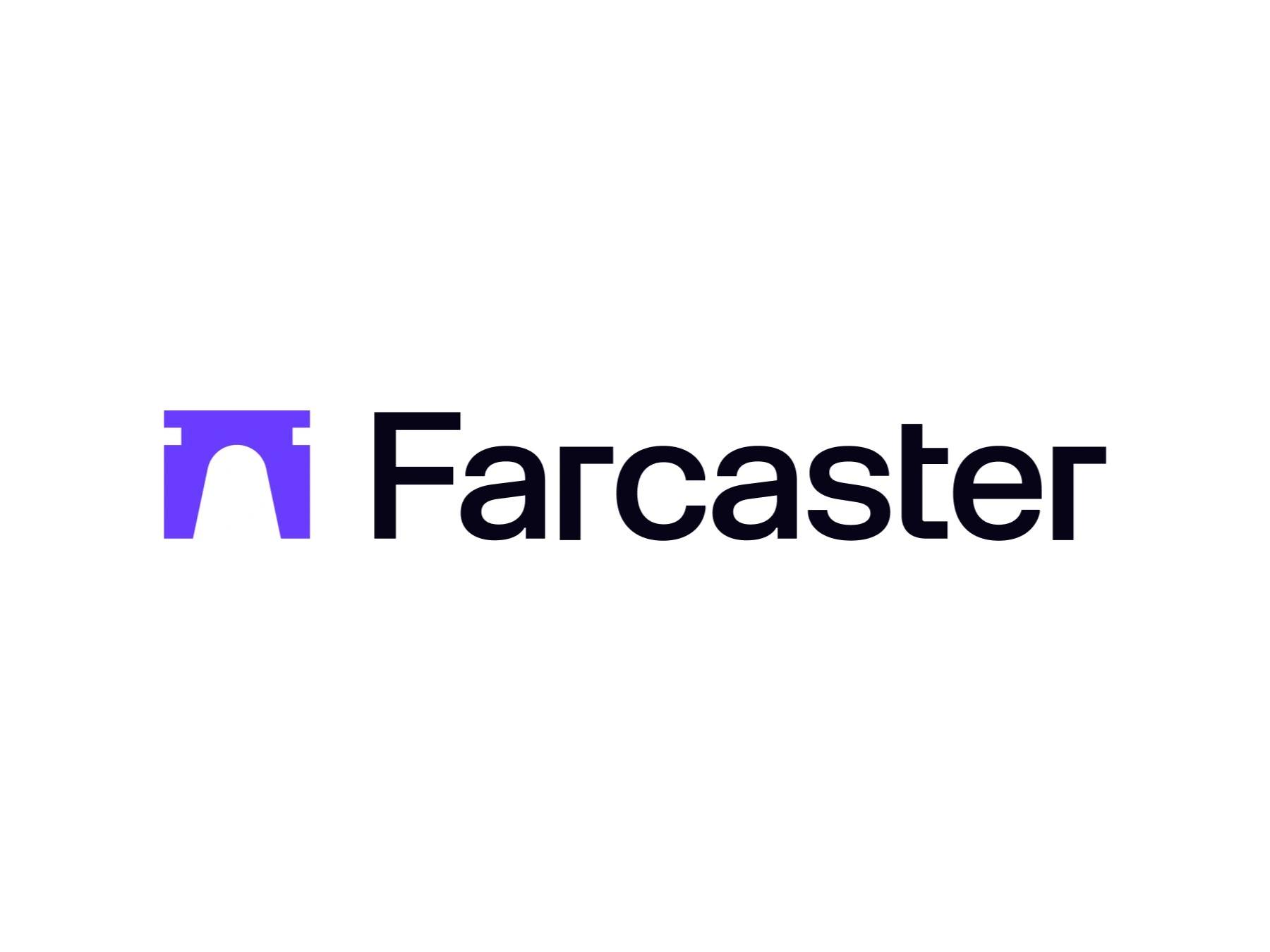위키 구독하기
Share wiki
Bookmark
Farcaster
0%
Farcaster
Farcaster는 탈중앙화 소셜 네트워킹 애플리케이션을 구축하기 위한 Optimism 기반 프로토콜로, 2020년 Dan Romero와 Varun Srinivasan에 의해 공동 설립되었습니다. [1] 2026년 1월, Farcaster 프로토콜은 네트워크 인프라 제공업체인 Neynar에 인수되었습니다. 인수 이후 Romero와 Srinivasan은 프로젝트를 떠났으며, 2026년 2월 글로벌 결제 솔루션에 집중하는 새로운 스테이블코인 벤처인 Tempo에 합류했다고 발표했습니다. [12]
개요
Farcaster는 소셜 앱을 구축하고 연결하기 위해 특별히 설계된 탈중앙화 프로토콜입니다. 사용자가 자신의 데이터와 오디언스에 대해 완전한 제어권을 갖는 검열 없는 환경을 조성하는 것을 목표로 합니다. 이를 위해 Farcaster는 사용자가 자신의 소셜 그래프를 제어하고 단일 신원을 통해 네트워크상의 다양한 앱과 상호작용할 수 있도록 하는 충분히 탈중앙화된 네트워크 아키텍처를 채택하고 있습니다. [1][14]
2024년 1월 26일, 새로운 기능인 프레임(Frames)의 출시 이후 Farcaster의 일일 활성 사용자 수가 급증했습니다. 프레임은 Farcaster 기반의 게시물을 상호작용형 미니 앱으로 효과적으로 변환하여, 사용자가 플랫폼을 떠나지 않고도 소셜 피드에서 직접 NFT를 민팅하고, 게임을 즐기며, 즉시 결제를 사용할 수 있게 해줍니다. [2]
Dune Analytics의 온체인 데이터에 따르면, 탈중앙화 소셜 프로토콜 Farcaster의 일일 활성 사용자 수는 2024년 2월 4일에 거의 30,000명에 육박했습니다. [7]
2024년 2월 5일, Ethereum의 공동 설립자인 Vitalik Buterin은 Farcaster와 동료 탈중앙화 소셜 미디어 프로토콜인 Lens가 일시적인 암호화폐 유행 이상의 존재가 될 가능성이 높다고 시사했습니다. [5][6]
"예측 하나를 등록하자면: farcaster와 lens는 4개월이나 1년 뒤에도 버려지지 않을 것입니다."[5]
2024년 2월 16일, Vitalik은 가명 DeeZe를 사용하는 NFT 아트 수집가의 트윗에 댓글을 달며 Farcaster가 사용 가능한 트위터(X)의 대안이라고 제안했습니다:
"@farcaster_xyz는 많은 사람들에게 트위터 대안으로 충분히 사용 가능한 수준에 도달한 것 같습니다. 채널 기능은 제 생각에 여러 면에서 더 낫게 만듭니다. 다만 스팸이 증가하고 있는데, 이를 잘 처리하는 것이 다음 과제가 될 것이라고 생각합니다."[11]
플랫폼의 수익 또한 2024년 2월에 60만 달러를 기록했습니다. Farcaster는 일상적인 사용으로 생성되는 데이터를 호스팅하기 위해 사용자에게 지속적인 저장 비용을 청구합니다. 저장 비용은 5,000개의 게시물, 2,500개의 반응 및 2,500개의 팔로우에 대해 연간 5달러입니다. 이 수수료의 일부는 플랫폼으로 가고 일부는 트랜잭션 수수료 지불 및 신용카드 정보 처리에 사용됩니다. [10]
역사
Farcaster는 2020년 Dan Romero와 Varun Srinivasan에 의해 공동 설립되었습니다. Farcaster를 공동 설립하기 전, Romero와 Srinivasan은 2015년부터 2019년까지 약 5년 동안 Coinbase에서 함께 일했습니다. Crunchbase에 따르면, Farcaster는 2023년 1월 벤처 캐피털 Archetype으로부터 비공개 시드 라운드 투자를 받았습니다. [3]
Farcaster는 처음에 Ethereum 위에 구축되었으나, 이후 2023년 8월에 Layer 2 네트워크인 Optimism으로 이전되었습니다. 공동 설립자 Romero는 Farcaster의 활성 사용자와 개발자 대부분이 Optimism에서 구축하고 있다는 점을 이유로 들었습니다. [3]
2022년 7월 12일, 공동 설립자 Dan Romero는 a16z crypto가 주도하고 Standard Crypto, Elad Gil, 1confirmation, Scalar Capital, First Round Capital, Balaji Srinivasan, Ribbit Capital, Coinbase Ventures 등 다른 엔젤 투자자와 VC 기업들이 참여한 3,000만 달러 규모의 투자를 발표했습니다. 이 투자는 Romero와 Varun이 Farcaster 개발을 위해 설립한 스타트업인 Merkle Manufactory를 위해 유치되었습니다. [8][9]
“2년 전, Varun [Srinivasan]과 저는 RSS+라는 아이디어로 함께 일하기 시작했습니다. 우리의 목표는 사용자가 오디언스와 직접적인 관계를 맺고 개발자가 허가 없이 새로운 클라이언트를 자유롭게 구축할 수 있는 신뢰할 수 있고 중립적인 프로토콜을 만드는 것이었습니다. 몇 번의 반복을 거쳐 궁극적으로 소셜 네트워크 구축을 위한 충분히 탈중앙화된 프로토콜인 Farcaster를 만들었습니다.” - Dan Romero 작성[8]
2026년 1월, Farcaster 프로토콜은 네트워크의 오랜 인프라 제공업체인 Neynar에 인수되었습니다. 인수 후 공동 설립자 Dan Romero와 Varun Srinivasan을 포함한 Merkle Manufactory의 초기 창립 팀은 프로젝트를 떠났습니다. [12]
기술
Farcaster는 사용자 신원 정보는 온체인에 저장하고, 게시물 및 상호작용 데이터는 오프체인에 저장하는 하이브리드 아키텍처를 사용합니다. [3]
프로토콜의 온체인 시스템은 Optimism mainnet의 스마트 컨트랙트를 사용하여 보안을 유지합니다. 온체인에서 수행되는 주요 작업은 다음과 같습니다:
- 계정 생성
- 데이터 저장을 위한 임대료 지불
- 연결된 앱에 계정 키 추가(또는 권한 부여)
Farcaster의 오프체인 시스템은 사용자 데이터를 저장하는 허브(Hubs)라고 불리는 서버의 피어 투 피어(P2P) 네트워크로 구성됩니다. 오프체인에서 수행되는 사용자 작업은 다음과 같습니다:
- 공개 메시지 게시
- 다른 사용자 팔로우
- 게시물에 반응
- 프로필 사진 업데이트
Farcaster의 핵심 요소
계정 (Account)
Farcaster 계정을 통해 사용자는 사용자 이름, 프로필 사진을 설정하고 캐스트(casts)라고 알려진 짧은 텍스트 메시지를 게시할 수 있습니다. 모든 Ethereum 주소는 온체인 트랜잭션을 생성하여 Farcaster 계정을 등록할 수 있습니다. [4]
사용자 이름 (Usernames)
Farcaster 계정은 다른 사용자가 찾고 멘션할 수 있도록 사용자 이름이 필요합니다. Farcaster는 사용자 이름을 관리하기 위해 Ethereum Name Service (ENS)를 사용합니다. ENS 사용자 이름은 Farcaster 계정과 마찬가지로 Ethereum 주소에 의해 소유됩니다. 차이점은 하나의 주소가 여러 ENS 이름을 소유할 수 있으므로, Farcaster 계정은 사용하고자 하는 이름을 지정해야 한다는 점입니다. 이름은 동형이의어 공격(homoglyph attacks)을 방지하기 위해 소문자 알파벳, 숫자 또는 하이픈만 사용하여 17자 미만이어야 합니다. [4]
메시지 (Messages)
계정은 네트워크에 다섯 가지 종류의 메시지를 게시할 수 있습니다:
- 캐스트(Casts): 누구나 볼 수 있는 공개 메시지
- 반응(Reactions): 계정과 캐스트 사이의 관계
- 링크(Links): 두 계정 사이의 관계
- 프로필 데이터(Profile Data): 계정에 대한 메타데이터
- 인증(Verifications): 무언가에 대한 소유권 증명 [4]
앱 (Apps)
두 종류의 앱이 있습니다:
- 지갑 앱(Wallet App) - 가입, 연결된 앱 추가, 메시지 게시 및 탐색을 허용합니다.
- 연결된 앱(Connected App) - 메시지 게시 및 탐색만 허용합니다. [4]
프레임 (Frames)
프레임을 사용하면 사용자가 모든 캐스트를 상호작용형 앱으로 바꿀 수 있습니다. 이는 Farcaster에서 상호작용적이고 인증된 경험을 만들기 위한 표준입니다. 프레임은 OpenGraph 표준을 확장하여 정적 임베드를 상호작용형 경험으로 변환합니다. [2][4]
$widget0
$$
잘못된 내용이 있나요?
